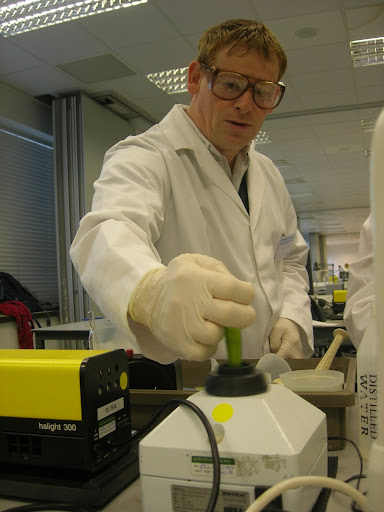Its time to face up to TMA-2. This is a difficult one for me, with all the time out for exam revision and also being half-term I've struggled to read all I was meant to for this TMA. I am running closer to the wire to the due date than I ever have before.
Unlike during my school days, I have always done my work well before the deadline (rather than the night before!). I usually have the TMA's ready at least a week before, and in some case up to a month before on some courses. This time I started the TMA a week before the deadline - but did just a few words on it - it was mostly a symbolic gesture.
I started in earnest 4 days before hand, which is dangerously late for me - thank goodness for the eTMA service - what with postal strikes and other things!
The TMA is in two parts this time.
The first part is to look at one of a selection of websites and write a critical review of it, going over the good and bad points and its attention to detail, credentials etc. I picked the one about Mohenjo-Daro an ancient city in the Indus valley. The course teaches you a series of metrics to apply to a website as a way to gauge how relevant and reliable it is - called PROMPT. 500 words or less are required. I'm done in 100 more or less, and have to work at doing some padding and trying to think of what I've forgotten.
The second part gets you to write a 1000 words on "What is a city?". This is quite a bit more tricky than you might think, especially when dealing with ancient civilisations.
Anyway, as usual I struggle to get up to the word count. However the thing that sustains me through this exercise is I'm writing a new reference formatter for zotero tailored to the A251 requirements - which are a little odd in places. With the incentive of doing some technical work I can get through it. I'm definitely missing the more surety of science based disciplines. I mean, biology essays are tricky, but you are writing about some definite concepts. Here you have to weigh opinions and state concepts but I find it all rather unsatisfactory. Just like the rise of agriculture the basic conclusion I think is who knows? Experts agree to disagree and in the end there is no definitive answer - I mean, what do we mean by city anyway, as compared to a town. Its all a matter of definition and rather nebulous.
I look with increasing longing at some of the science short courses... but at the same time there is only one more TMA and an ECA to complete this - I CAN do this!
skip to main |
skip to sidebar

Life studying for a 2nd time around with the Open University and others.
My Latest Blip
About Me
Topics
- A251 (7)
- astronomy (1)
- CMA (4)
- coursera (8)
- courses (40)
- degree (1)
- ECA (2)
- exam (7)
- experiment (3)
- G+C (7)
- html (1)
- intro (1)
- java (1)
- quantum mechanics (1)
- residential (43)
- S103 (19)
- S170 (1)
- S171 (1)
- S193 (1)
- S194 (4)
- S196 (1)
- S204 (21)
- s205 (18)
- S282 (17)
- s283 (8)
- S320 (12)
- S366 (11)
- S377 (10)
- SD329 (9)
- sk195 (2)
- sxr103 (3)
- SXR208 (9)
- sxr270 (7)
- sxr270tutor (7)
- SXR375 (9)
- SXR376 (8)
- TMA (49)
- tutorial (4)
- udemy (3)




No comments:
Post a Comment